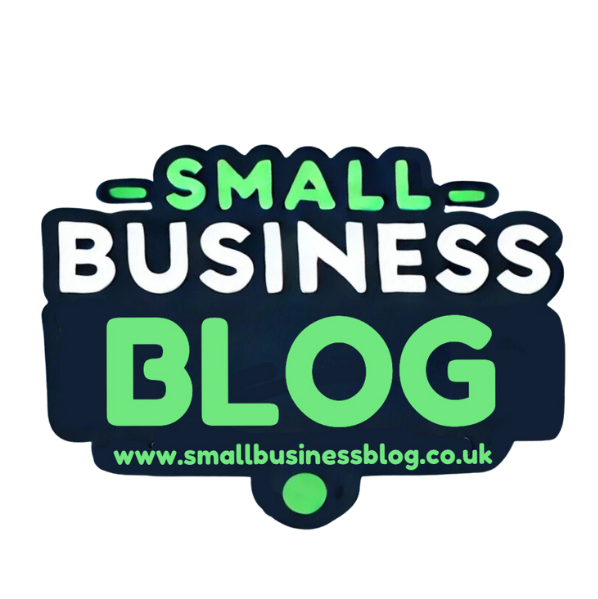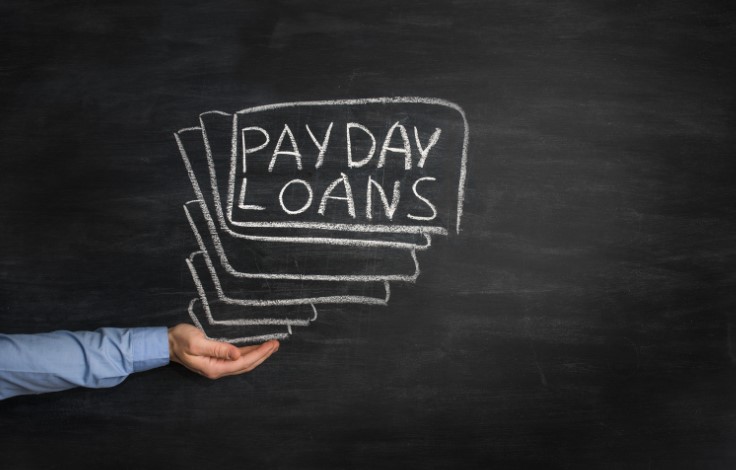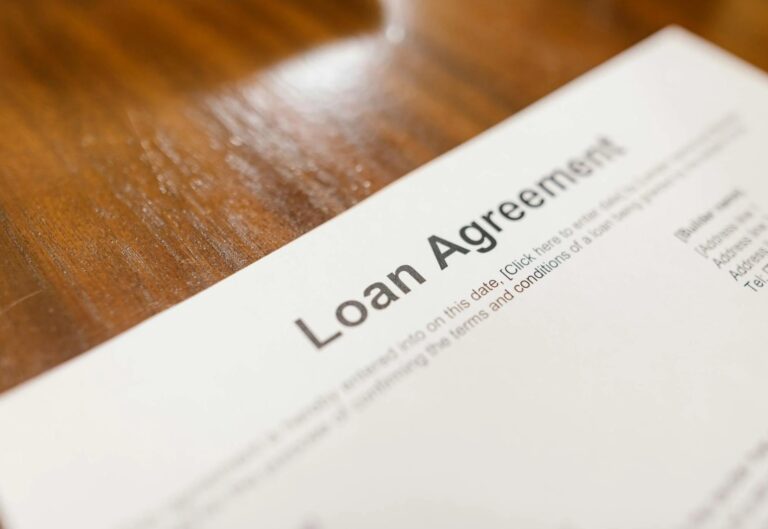Business Taxes For Small Business in UK – When & What You Need To Pay?
What Are the Different Types of Business Taxes for Small Business in the UK?
Understanding the different types of business taxes for small business in the UK is essential for small business owners. Below is a detailed explanation of each type of tax, including how to pay each one, along with a table summarizing the key points.
1. Corporation Tax
What is Corporation Tax?
Corporation tax is a tax on the profits made by companies and certain organizations, such as clubs, societies, associations, and other unincorporated bodies in the UK. It applies to both income and capital gains. The tax is levied annually, and companies are required to calculate and pay their corporation tax based on their accounting period.
Corporation tax is significant for businesses as it affects their net profitability. Companies must adhere to specific guidelines and regulations set by HM Revenue and Customs (HMRC) to ensure accurate calculation and timely payment. Failure to comply can result in penalties and interest charges.
Who Pays Corporation Tax?
Corporation tax is paid by limited companies operating in the UK. Additionally, any foreign companies with a UK branch or office and certain other organizations, such as clubs and societies, must also pay corporation tax on their profits. This tax applies regardless of whether the profits are distributed to shareholders or reinvested into the business.

Corporation Tax Rate
The current corporation tax rate in the UK is 19%. This rate applies uniformly to all profits, regardless of the amount. However, it’s essential to stay updated on any changes to the tax rate, as it can be altered by government policies. Companies must ensure they apply the correct rate for their accounting period.
Corporation Tax Filing
Companies must file a Corporation Tax Return (CT600) with HMRC within 12 months of the end of their accounting period. This return includes details of the company’s income, expenses, and profits, along with the calculated corporation tax owed. Companies must also submit supporting documents, such as financial statements and tax computations.
Example
For instance, if a company’s accounting period ends on 31st December 2023, it must file its Corporation Tax Return by 31st December 2024. The payment of the corporation tax is due 9 months and 1 day after the end of the accounting period, which would be 1st October 2024. Timely filing and payment are crucial to avoid penalties.
How To Pay Corporation Tax?
Companies can pay their corporation tax online through their HMRC online account. Payment options include Direct Debit, BACS, CHAPS, or online banking. It’s important to ensure that payments are made by the deadline to avoid any interest charges or penalties for late payment.
2. Value Added Tax (VAT)
What is Value Added Tax (VAT)?
Value Added Tax (VAT) is a consumption tax placed on goods and services at each stage of production or distribution. VAT is ultimately borne by the end consumer, with businesses acting as intermediaries who collect and remit the tax to HMRC. VAT is charged on most goods and services provided by VAT-registered businesses in the UK.
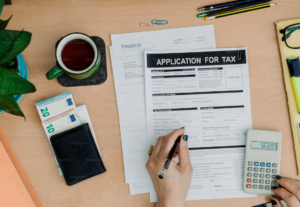 VAT is designed to be neutral for businesses, as they can reclaim VAT paid on business-related purchases. This system ensures that the tax burden falls on the final consumer rather than on the businesses involved in the production and distribution chain.
VAT is designed to be neutral for businesses, as they can reclaim VAT paid on business-related purchases. This system ensures that the tax burden falls on the final consumer rather than on the businesses involved in the production and distribution chain.
Who Pays VAT?
Businesses with a taxable turnover exceeding £85,000 must register for VAT and charge it on their sales. VAT is paid by the end consumer, but businesses are responsible for collecting and remitting it to HMRC. Even businesses with a lower turnover can choose to register for VAT voluntarily, which can be beneficial for reclaiming VAT on purchases.
VAT Rate
The standard VAT rate in the UK is 20%. However, there are reduced rates of 5% and 0% for certain goods and services, such as children’s car seats and most food items. Businesses must apply the correct VAT rate to their goods and services to ensure compliance with HMRC regulations.
VAT Filing
VAT-registered businesses must submit VAT returns quarterly. These returns detail the amount of VAT collected on sales and the amount of VAT paid on purchases. Businesses can file their returns online through HMRC’s Making Tax Digital (MTD) service. Accurate record-keeping is essential to avoid errors and penalties.
Example
For example, a business with a taxable turnover of £100,000 must charge 20% VAT on its sales. If the business sells goods worth £100,000, it would collect £20,000 in VAT from customers. The business can reclaim VAT paid on business-related purchases, such as raw materials and equipment.
How To Pay VAT?
VAT payments are made online via the business’s HMRC online account. Businesses can set up a Direct Debit, make bank transfers, or pay by debit/credit card. Ensuring timely payment of VAT liabilities is crucial to avoid interest charges and penalties.
3. Income Tax and Self-Assessment
What is Income Tax and Self-Assessment?
Income tax is a tax on the income earned by individuals, including self-employed individuals and partners in a partnership. Self-Assessment is the system used by HMRC to collect income tax from these individuals. Self-Assessment requires individuals to file a tax return detailing their income and expenses to calculate the tax owed.
Self-Assessment is essential for ensuring that self-employed individuals and partners pay the correct amount of tax on their business profits. It allows for the inclusion of various income sources and applicable tax reliefs and allowances.
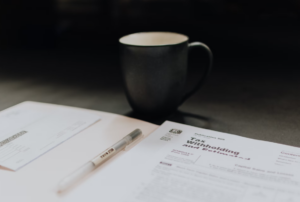 Who Pays Income Tax and Self-Assessment?
Who Pays Income Tax and Self-Assessment?
Self-employed individuals, partners in partnerships, and individuals with additional sources of income (such as rental income or investments) must pay income tax through Self-Assessment. This system is also used by individuals who have untaxed income or need to claim tax reliefs.
Income Tax Rate
Income tax rates in the UK vary based on income brackets. The basic rate is 20%, the higher rate is 40%, and the additional rate is 45%. These rates apply to different portions of an individual’s income, with personal allowances reducing the taxable amount.
Income Tax and Self-Assessment Filing
Self-Assessment tax returns must be filed annually by 31st January for online submissions. The return includes details of all income sources and allowable expenses. Payments on account may be required to cover the following year’s tax liabilities. Late submission results in penalties.
Example
For instance, a self-employed consultant earning £50,000 per year must file a Self-Assessment tax return. The consultant will calculate the income tax owed based on their profits after deducting allowable expenses. The tax return must be filed by 31st January, with any tax due paid by the same date.
How To Pay Income Tax and Self-Assessment?
Tax owed through Self-Assessment can be paid online via the individual’s HMRC online account. Payment options include Direct Debit, bank transfer, debit/credit card, or through the taxpayer’s bank. Ensuring timely payment is important to avoid penalties and interest charges.
Related Article: How Much Can a Small Business Make Before Paying Taxes in the UK?
4. National Insurance Contributions (NICs)
What are National Insurance Contributions (NICs)?
National Insurance Contributions (NICs) are payments made by employees, employers, and self-employed individuals to qualify for certain state benefits, including the State Pension. NICs are collected by HMRC and are based on earnings and profits.
NICs play a crucial role in funding the UK’s social security system. They provide individuals with entitlements to various benefits, such as maternity allowance, statutory sick pay, and state pension.
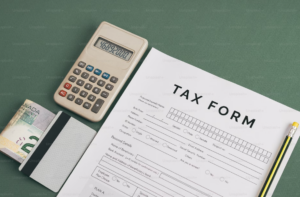 Who Pays NICs?
Who Pays NICs?
NICs are paid by employees and their employers, as well as self-employed individuals. Employees and employers pay Class 1 NICs, while self-employed individuals pay Class 2 and Class 4 NICs. The amount payable depends on earnings and profit levels.
NICs Rate
NICs rates vary depending on the type of contributions:
- Class 1: Employees pay 12% on earnings between £242 and £967 per week and 2% on earnings above £967. Employers pay 13.8% on earnings above £175 per week.
- Class 2: Self-employed individuals pay a flat rate of £3.15 per week.
- Class 4: Self-employed individuals pay 9% on annual profits between £11,908 and £50,270, and 2% on profits above £50,270.
NICs Filing
Employees’ NICs are deducted through the PAYE (Pay As You Earn) system by employers and paid monthly or quarterly. Self-employed individuals report and pay their NICs through their annual Self-Assessment tax return. Accurate calculation and timely payment are crucial to avoid penalties.
Example
An employee earning £30,000 annually will have NICs deducted by their employer through PAYE. A self-employed individual with annual profits of £20,000 will calculate and pay their Class 2 and Class 4 NICs through their Self-Assessment tax return.
How To Pay NICs?
For Class 1 NICs, employers pay monthly or quarterly through the PAYE system. For Class 2 and Class 4 NICs, self-employed individuals include their contributions in their annual Self-Assessment tax return payment. Payment options include Direct Debit, bank transfer, or through the HMRC online account.
5. Business Rates
What are Business Rates?
Business rates are a tax on properties used for business purposes. These rates are calculated based on the property’s rateable value, which is assessed by the Valuation Office Agency (VOA). The revenue generated from business rates is used to fund local services.
Business rates apply to a wide range of properties, including shops, offices, factories, and warehouses. The rates can be significant, so it is essential for businesses to understand their liabilities and explore any available reliefs.
 Who Pays Business Rates?
Who Pays Business Rates?
Business rates are paid by the occupiers of non-domestic properties. This includes owners, tenants, or leaseholders of commercial properties. Charities and non-profit organizations may be eligible for reduced rates or exemptions.
Business Rates Rate
The rateable value of a property is multiplied by a uniform business rate (UBR) to determine the amount payable. The UBR is set by the government and can vary by location and type of property. Small businesses may qualify for Small Business Rates Relief.
Business Rates Filing
Annual business rates bills are issued by local councils. The bill includes the rateable value of the property, the applicable UBR, and the total amount payable for the year. Businesses can usually pay in monthly installments.
Example
For instance, a small retail shop with a rateable value of £12,000 may qualify for Small Business Rates Relief, significantly reducing its annual business rates bill. The local council issues the bill, which can be paid in installments.
How To Pay Business Rates?
Business rates are paid to the local council. Payment options typically include Direct Debit, bank transfer, cheque, or online payment through the council’s website. Paying in installments can help manage cash flow throughout the year.
6. Dividends Tax
What is Dividends Tax?
Dividends tax is a tax on the income received from dividends paid by companies to their shareholders. This tax applies to individuals who hold shares in UK companies and receive dividend payments. Dividends are a common way for shareholders to receive a return on their investments.
Dividends tax is important for shareholders to understand as it affects the net income they receive from their investments. Proper tax planning can help optimize the tax liabilities on dividend income.
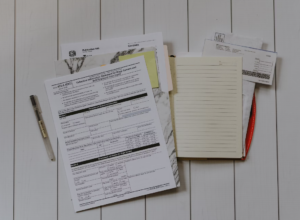 Who Pays Dividends Tax?
Who Pays Dividends Tax?
Dividends tax is paid by individuals who receive dividend income from UK companies. This includes both individual investors and shareholders of their own companies. The tax is applied to the total dividend income received in a tax year.
Dividends Tax Rate
The tax rates on dividends depend on the individual’s income tax band:
- Basic Rate: 8.75%
- Higher Rate: 33.75%
- Additional Rate: 39.35% Dividends falling within the personal allowance and the dividend allowance (£2,000) are tax-free.
Dividends Tax Filing
Dividend income must be reported through the annual Self-Assessment tax return. Individuals must include all dividend income received during the tax year and calculate the tax owed based on the applicable rates.
Example
For instance, a shareholder receiving £10,000 in dividends within the basic rate threshold would pay 8.75% on the dividend income above the £2,000 allowance. This would result in a tax liability of £700 on the £8,000 taxable dividend income.
How To Pay Dividends Tax?
Dividend tax owed is paid through the individual’s HMRC online account as part of their Self-Assessment tax return. Payment options include Direct Debit, bank transfer, debit/credit card, or through the taxpayer’s bank. Ensuring timely payment is essential to avoid penalties and interest charges.
7. Capital Gains Tax (CGT)
What is Capital Gains Tax (CGT)?
Capital Gains Tax (CGT) is a tax on the profit made from selling or disposing of an asset. This includes business assets, property (excluding primary residences), shares, and other valuable items. CGT is only charged on the gain made, not the total amount received from the sale.
CGT is crucial for businesses and individuals involved in selling assets to understand, as it can significantly impact the net proceeds from the sale. Proper tax planning can help mitigate CGT liabilities.
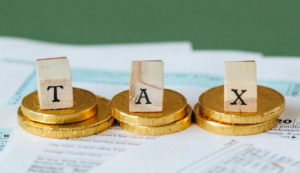 Who Pays Capital Gains Tax?
Who Pays Capital Gains Tax?
Individuals, trustees, and personal representatives of deceased persons must pay CGT on any capital gains realized. Businesses may also be subject to CGT on the disposal of certain assets, although corporate gains are generally subject to corporation tax.
Capital Gains Tax Rate
The CGT rates depend on the individual’s total taxable income:
- Basic Rate: 10% on gains
- Higher Rate: 20% on gains For residential property, the rates are 18% for basic rate taxpayers and 28% for higher rate taxpayers. The annual CGT allowance exempts the first £12,300 of gains from tax.
CGT Filing
Capital gains must be reported through the annual Self-Assessment tax return. Individuals must include all gains and losses realized during the tax year. Accurate calculation and reporting are essential to ensure compliance.
Example
For instance, if a business owner sells a piece of machinery for a £20,000 profit, they would pay CGT based on their income tax band, with the first £12,300 potentially exempt under the annual CGT allowance. If they are a higher rate taxpayer, the CGT on the remaining £7,700 would be 20%.
How To Pay Capital Gains Tax?
CGT owed is paid through the individual’s HMRC online account as part of their Self-Assessment tax return. Payment options include Direct Debit, bank transfer, debit/credit card, or through the taxpayer’s bank. Ensuring timely payment is crucial to avoid interest charges and penalties.
Summary of Small Business Taxes in the UK
| Type of Tax | Applicability | Current Rate | Filing Requirements | How to Pay |
|---|---|---|---|---|
| Corporation Tax | Profits of limited companies | 19% | Annual Corporation Tax Return (CT600) | Online via HMRC account (Direct Debit, BACS, CHAPS, online banking) |
| Value Added Tax (VAT) | Goods and services | 20% (standard rate) | Quarterly VAT Returns if turnover exceeds £85,000 | Online via HMRC account (Direct Debit, bank transfer, debit/credit card) |
| Income Tax and Self-Assessment | Self-employed individuals, partners in a partnership | Varies based on income | Annual Self-Assessment Tax Return | Online via HMRC account (Direct Debit, bank transfer, debit/credit card) |
| National Insurance Contributions | Employees (Class 1), self-employed (Class 4) | Varies based on earnings | Monthly/quarterly contributions, annual summary for self-employed | PAYE system (Class 1) or Self-Assessment (Class 4) (Direct Debit, bank transfer) |
| Business Rates | Properties used for business purposes | Based on rateable value | Annual bill, potential eligibility for Small Business Rates Relief | Local council (Direct Debit, bank transfer, cheque, online payment) |
| Dividends Tax | Dividends paid to shareholders | 8.75% (basic), 33.75% (higher), 39.35% (additional) | Reported via Self-Assessment | Online via HMRC account (Direct Debit, bank transfer, debit/credit card) |
| Capital Gains Tax | Profit from selling business assets | 10% (basic), 20% (higher) | Reported via Self-Assessment | Online via HMRC account (Direct Debit, bank transfer, debit/credit card) |
Understanding these various taxes, their rates, filing requirements, and payment methods is crucial for small business owners in the UK. Keeping up-to-date with changes and maintaining accurate records will help ensure compliance and take advantage of any available reliefs.
What Are Tax-Deductible Expenses?
Common Deductible Business Expenses
Understanding which expenses are tax-deductible can significantly reduce your tax liability:
- Office supplies and equipment: Including computers, printers, and office furniture.
- Travel and subsistence: Business travel costs, including accommodation and meals.
- Professional services: Fees for accountants, solicitors, and other professionals.
Tax Reliefs and Allowances
Small Business Rates Relief
Small businesses can apply for rates relief if their property’s rateable value is less than £15,000. This can reduce or eliminate business rates liability.
Annual Investment Allowance (AIA)
AIA allows businesses to deduct the full value of qualifying capital assets from profits before tax, up to a limit of £1,000,000.
Research and Development (R&D) Tax Relief
Small businesses engaged in innovative projects can claim R&D tax relief, which can significantly reduce their corporation tax bill.
Common Tax Issues and How to Avoid Them
Late Payments and Penalties
Late tax payments result in interest charges and penalties. Set reminders and use accounting software to keep track of deadlines.
Record-Keeping Requirements
Accurate record-keeping is essential. Keep all receipts, invoices, and bank statements organized. Use accounting software like QuickBooks or Xero to streamline the process.
Dealing with HMRC Investigations
HMRC investigations can be triggered by errors or inconsistencies in tax returns. Always provide accurate information and consult a tax advisor if an investigation is initiated.
Frequently Asked Questions (FAQs)
1. What are the key dates for filing and paying Corporation Tax?
Corporation Tax returns must be filed with HMRC within 12 months of the end of your company’s accounting period. However, the payment of Corporation Tax is usually due 9 months and 1 day after the end of the accounting period. For example, if your accounting period ends on 31st December, your Corporation Tax return must be filed by 31st December of the following year, and the tax must be paid by 1st October of the same year.
2. Do I need to register for VAT if my turnover is below £85,000?
If your business’s taxable turnover is below the VAT threshold of £85,000, you are not required to register for VAT. However, you can choose to register voluntarily. Voluntary registration can be beneficial if you incur a lot of VAT on your purchases, as you can reclaim it. Once registered, you must charge VAT on your sales and submit regular VAT returns to HMRC.
3. How can I reduce my Income Tax liability as a self-employed individual?
To reduce your Income Tax liability, you can take advantage of allowable business expenses to lower your taxable profits. This includes expenses such as office supplies, travel, and professional services. Additionally, you can contribute to a pension scheme, which can provide tax relief. Keeping detailed and accurate records of all your business expenses is crucial to ensure you claim everything you are entitled to.
4. What are the penalties for late payment of National Insurance Contributions (NICs)?
Late payment of NICs can result in interest charges and penalties. The penalties increase the longer the payment is overdue. For example, a late payment penalty of 5% is applied if the payment is more than 30 days late. Additional penalties are charged at 6 and 12 months if the payment remains outstanding. To avoid these penalties, it’s important to pay your NICs on time and keep accurate records of your payments.
5. Can I appeal a Business Rates assessment if I believe it is incorrect?
Yes, if you believe your Business Rates assessment is incorrect, you can appeal to the Valuation Office Agency (VOA). You need to provide evidence to support your appeal, such as rental evidence or details of similar properties with lower rateable values. If you are not satisfied with the VOA’s decision, you can further appeal to the Valuation Tribunal. It’s advisable to seek professional advice to strengthen your case and ensure a better outcome.
